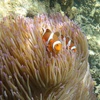
Adapting to change: coral reefs
Coral reefs around the world are adapting to climate change, according to the latest data from a study by the France-based Institute for Development Research (IRD), writes SciDev.Net. Read the full story here.



Coral reefs around the world are adapting to climate change, according to the latest data from a study by the France-based Institute for Development Research (IRD), writes SciDev.Net. Read the full story here.
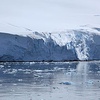
Studies find West Antarctica’s ice sheet is melting fast. But a new look at the ancient past suggests it once pushed sea levels up by three metres, writes the Guardian. Read the full story here.
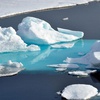
Global warming will eventually push 1 out of every 13 species on Earth into extinction, a new study projects, writes YAHOO News. Read the full story here.

Nature World News writes: Methane comes from a variety of sources, both natural and man-made. This includes methane-munching microbes that live in rocks in the deep sea, helping to control this potent greenhouse gas. But now new research shows that ocean currents may be hindering these critical methane-eating bacteria, thus contributing to global warming. Read the full story at Nature World News here.
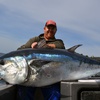
From CSIRO Snapshot: We have been reunited with an old friend. We met a long time ago, 22 years in fact, and we certainly left our mark during that first meeting. Now with a long passage of time behind us, we are keen to find where she has been all this time. We are, of course, talking about this stunning southern bluefin tuna (SBT). Tagged in 1993, the fish …

The Mercury writes: LAST summer’s discovery of swordfish in Tasmanian waters could trigger a stampede of well-heeled recreational fishers from interstate and overseas. Fishing enthusiast Leo Miller said eastern Tasmanian waters were suddenly shaping up as one of the best fishing grounds for one of the world’s most sought after game fish. Mr Miller said he believed swordfish had always been common in Tasmanian waters, near the edge of the …
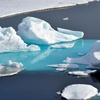
Some scientists have suggested that global warming could melt frozen ground in the Arctic, releasing vast amounts of the potent greenhouse gas methane into the atmosphere, greatly amplifying global warming, reports Science Daily. It has been proposed that such disastrous climate effects could be offset by technological approaches. One such proposal is to artificially whiten the surface of the Arctic Ocean in order to increase the reflection of the …
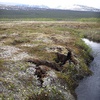
Single-cell organisms called microbes are rapidly devouring the ancient carbon being released from thawing permafrost soil and ultimately releasing it back into the atmosphere as carbon dioxide, according to new research, reports Science Daily. Increased carbon dioxide levels, of course, cause the Earth to warm and accelerate thawing. Read the full story here.
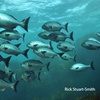
The monetary value of the world’s oceans has been estimated at US$24tn in a new report that warns that overfishing, pollution and climate change are putting an unprecedented strain upon marine ecosystems, writes The Guardian newspaper. Read the story here.
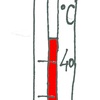
Sea life near volcanic seeps may offer clues as to how animals will adapt to global warming and ocean acidification, writes the New Yorker. Read the full story here.